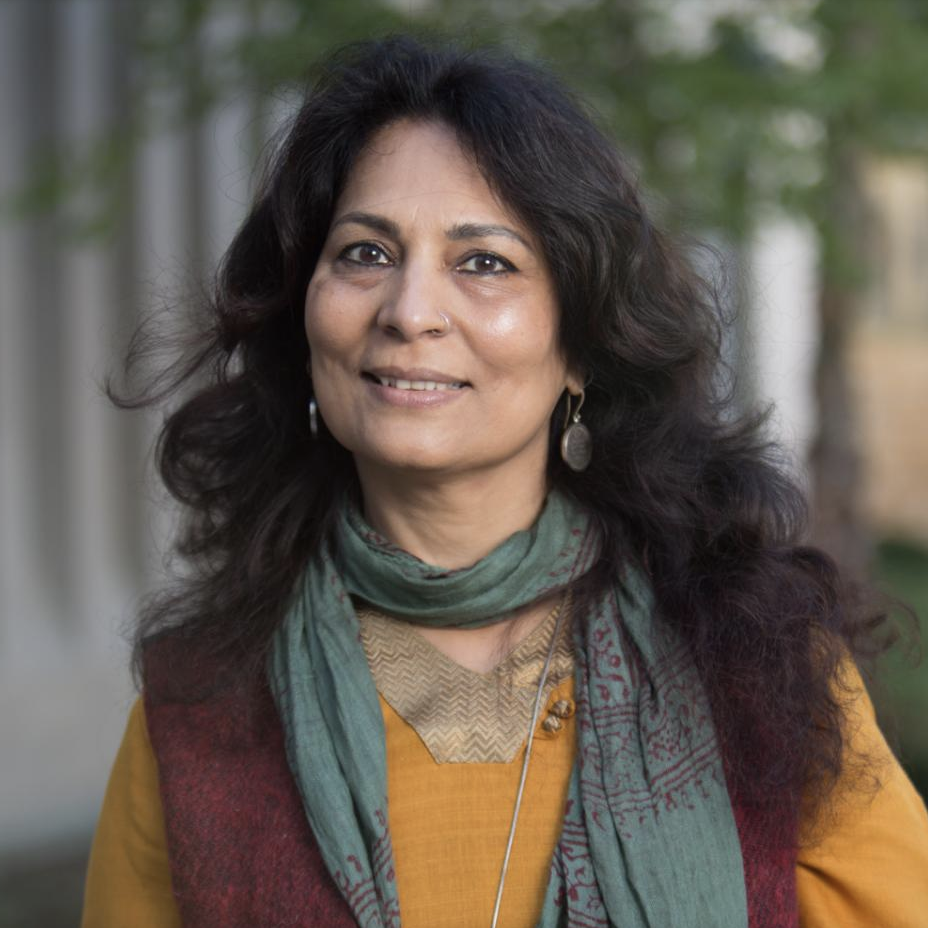We’re always thrilled when one of our alums speaks about the impact of the Lesley MFA program. Those of us who attended the January 2023 graduation ceremony were fortunate to hear from Meenakshi Chhabra, a June 2022 graduate, about her post-graduate experience and what she hopes new grads take away from the program. She has generously given us permission to post her speech here, and we hope you take a few minutes to read what she has to say.
I want to share a few words with you. Being an alum of the program myself, I graduated last year [June 2022], I know the hard work that you have put in to be at this finish line. I want to salute you for staying in the fire. I myself, almost dropped out and would have not returned had it not been for the persistent encouragement from my mentor. It’s not easy. And, it may still not be easy. All that you put on the back burner, the friends and family who have patiently waited for you to finish, will want you back. And there is no excuse now; Your masters is done. You will feel pulled in many directions. Those voices of doubt may creep back again, you may become overcritical about your own work, or disappointed at not being able to publish. We want you to know, that you are always valued in this community. You’ve made a mark by your very presence. Reach out to this MFA community, to your mentors, and your peers for support. Stay connected.
I also hope that you are taking back more than just writing skills from being in this community. You are taking back a new way of seeing the world, of appreciating difference, and a curiosity about it, that invites you to expand the boundaries of craft. I want to share my own experience here.
I was introduced to Patricia Hampl in my second semester. At the time I was working on “applying pressure,” to my narrative about memories of my family. I was soaking up Hampl’s, A Romantic Education, completely in awe of the way she reflected on memory. This was also when my mother was visiting me from India. In my teenage years I read books that she suggested. I think unconsciously we came to share interest in similar kinds of books. I’m not sure when our roles reversed but somewhere she began to read the books I recommended.
So of course, when I was done, I handed her my copy of A Romantic Education, while I ordered another book by Hampl’s. I may have also added, “You are going to love this Ma.” Now my mother has never not finished a book she started. I mean never! I was surprised when a couple of days later she came up to me and said, “Not sure what you liked about this book.” And she continued to make her point, “It drags on. The writer gets stuck on herself and goes on and on about her feelings. That does not interest me. I want to know what’s happening to her grandmother, her family, to the other people she talks about, but she doesn’t tell us much. It’s just her.”
I regretted my decision. Ma never finished the book and Hampl probably introduced a doubt in her about my reading choice.
But I realized something else. I was “reading like a writer” a different kind of writer than my mother or I had been exposed to when I was growing up.
This felt like a turning point in the way I began to view writing craft. I started reading authors from different cultural traditions including my own, some works that I wouldn’t naturally gravitate to, to explore IS in different genres–graphic novels, fiction–looking for differences in craft. For example, I observed that Indian authors from across many genres including fiction, poetry, graphic novels, memoir, centered their voice on the context and the societal issues, issues of larger identity politics, on the collective, rather than the individual.
Writing for me became a way of noticing these different kinds of writing craft, of finding ways of layering and weaving them, playing with them and having fun. As Dr. Seuss would say,” If you never did you should. These things are fun, and fun is good.”
Writing is a privilege, and, in this world, we live in today, writing freely an even greater privilege.
My hope and wish for us as graduates and alums of this program is that we continue to write and uncover new ways of writing. Ways of owning our writing. Of freeing it.


Comments are closed